You can trust Coach
Just as you don’t know what you’ve got till it’s gone, sometimes you only realise what’s been missing when it arrives. Adidas’s line-up of Boost shoes is phenomenally successful, but it’s been missing a shoe like the SolarBoost – a performance running shoe that’s not as lightweight as the Adios or the Boston, but is more stable and lighter than the UltraBoost. After trying the SolarBoost on a range of runs, I can confirm it lives up to this billing. If you’re looking for an all-purpose neutral shoe for training and racing, it’s certainly a shoe worth considering.
The Boost foam provides as enjoyable a ride as ever, but the upper on the SolarBoost is very different from the UltraBoost. The toe box is snug and keeps the foot locked in place better than a knit upper. I feared it would be too tight and annoy me when running, but that didn’t prove to be the case. It’s best described as secure rather than tight and it’s consistently stable even when you pick up the pace. The guide rail on the shoe also helps with this. The SolarBoost is not a stability shoe designed to counter pronation problems, but it is more supportive than the UltraBoost, the knit upper on which can feel slightly sloppy when running at speed.
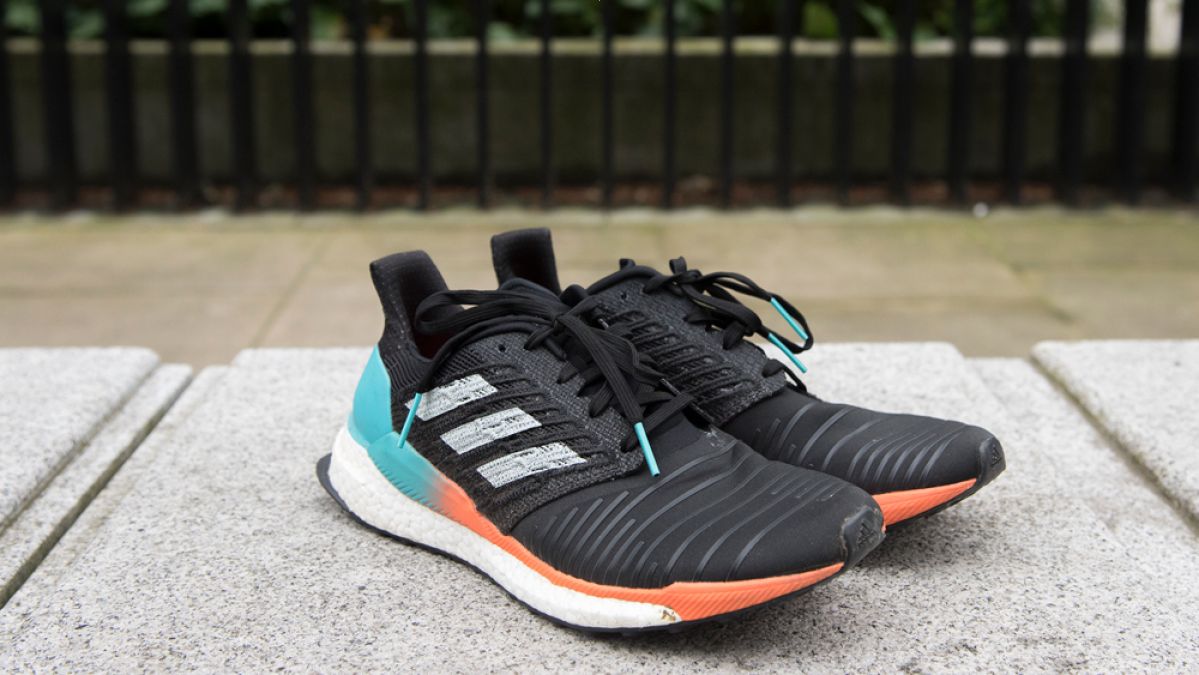
Adidas SolarBoost
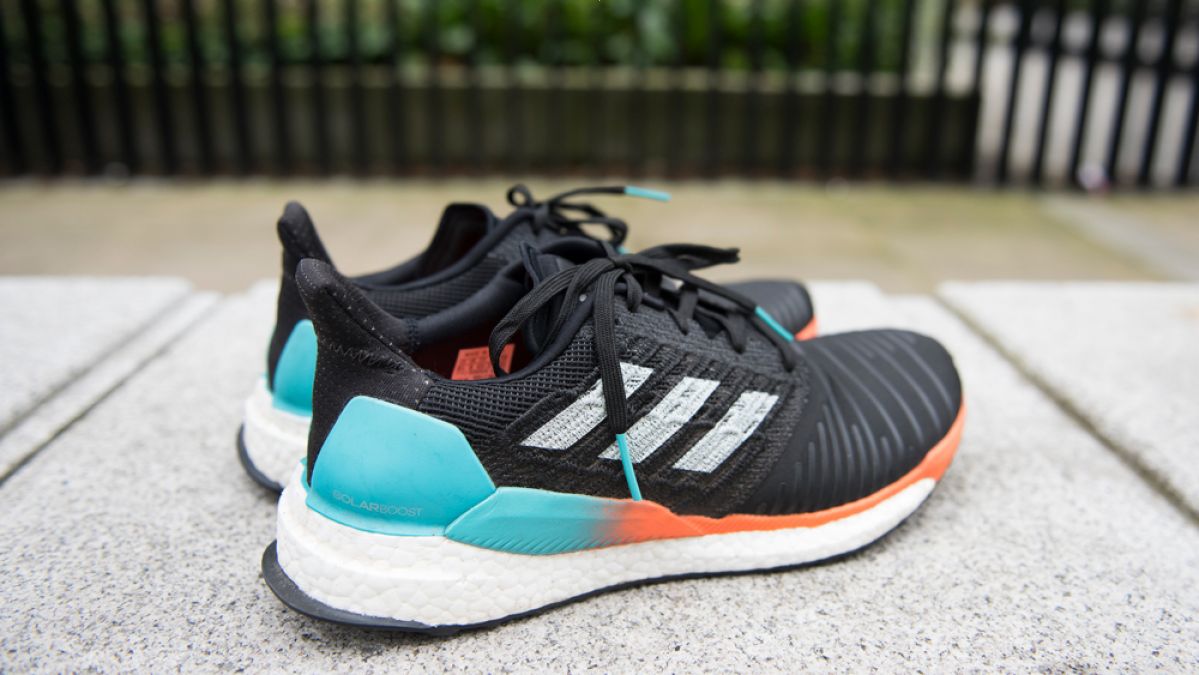
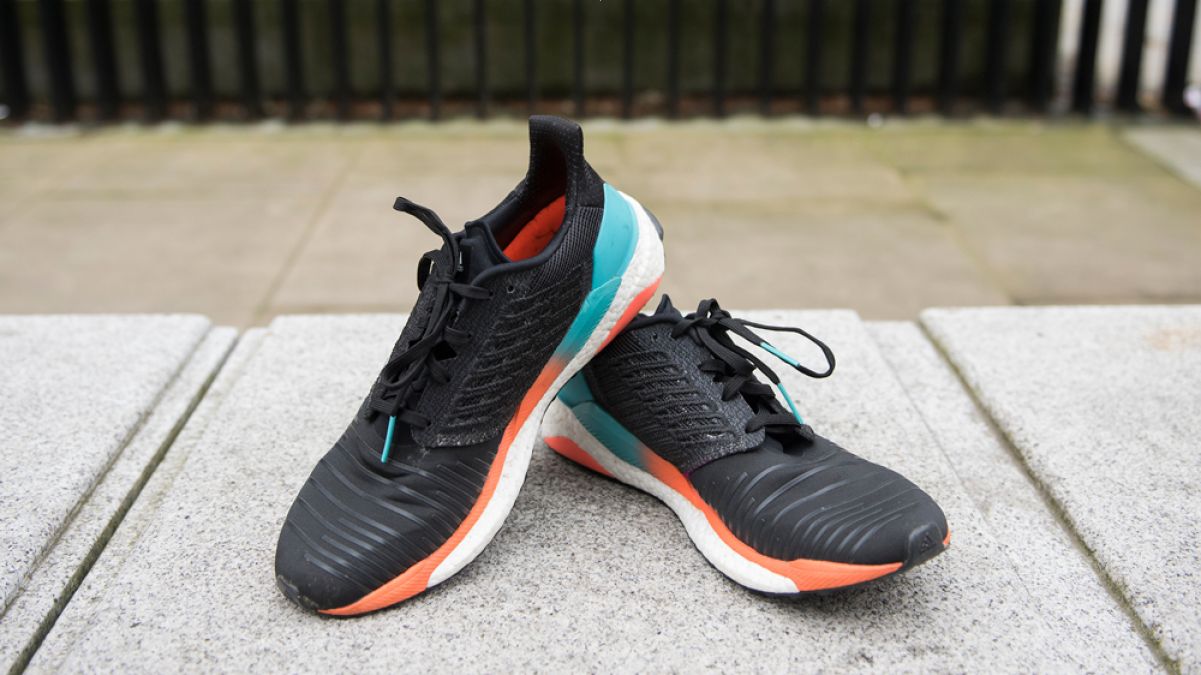
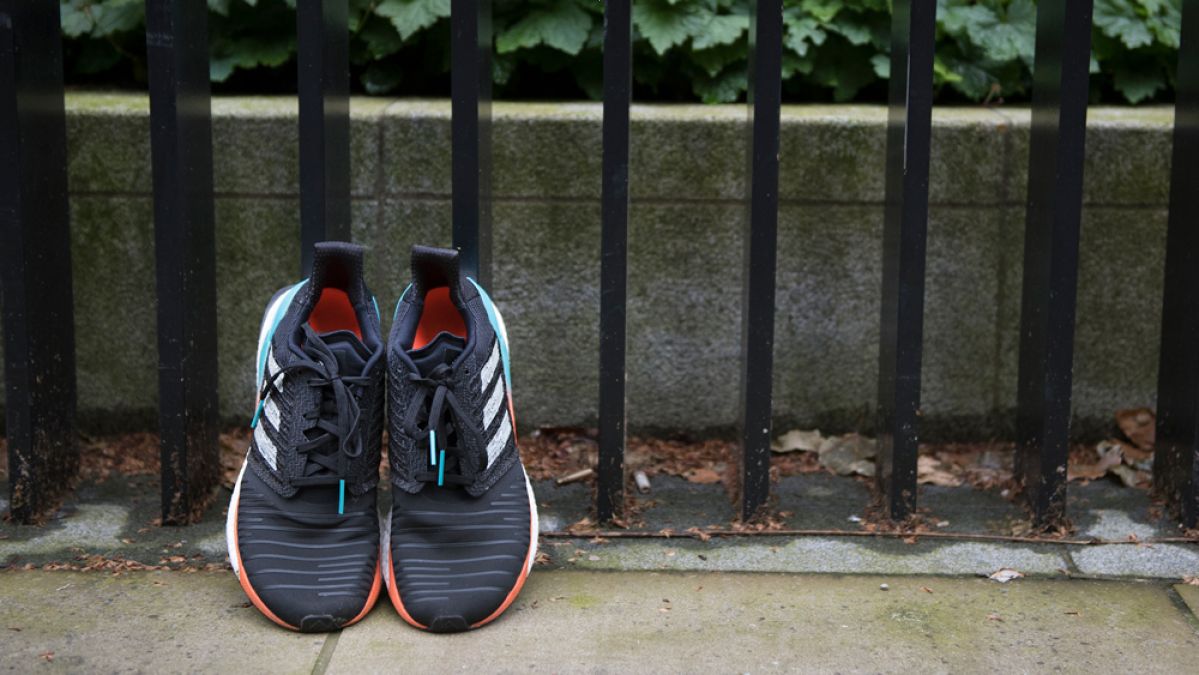
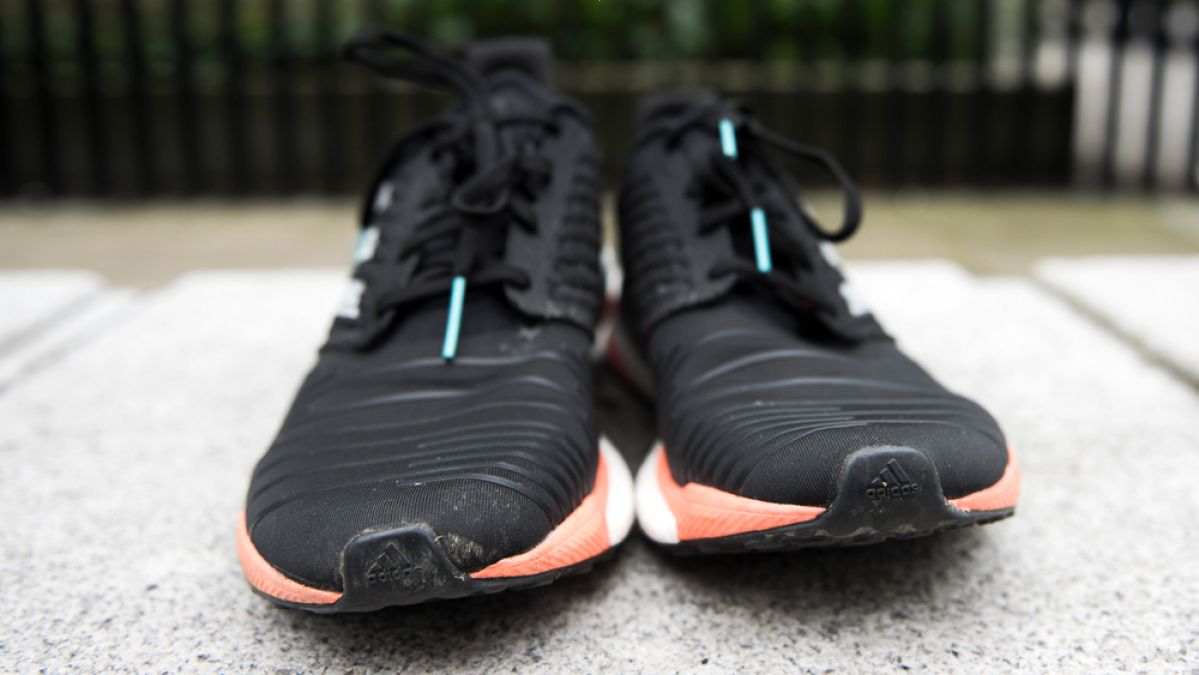
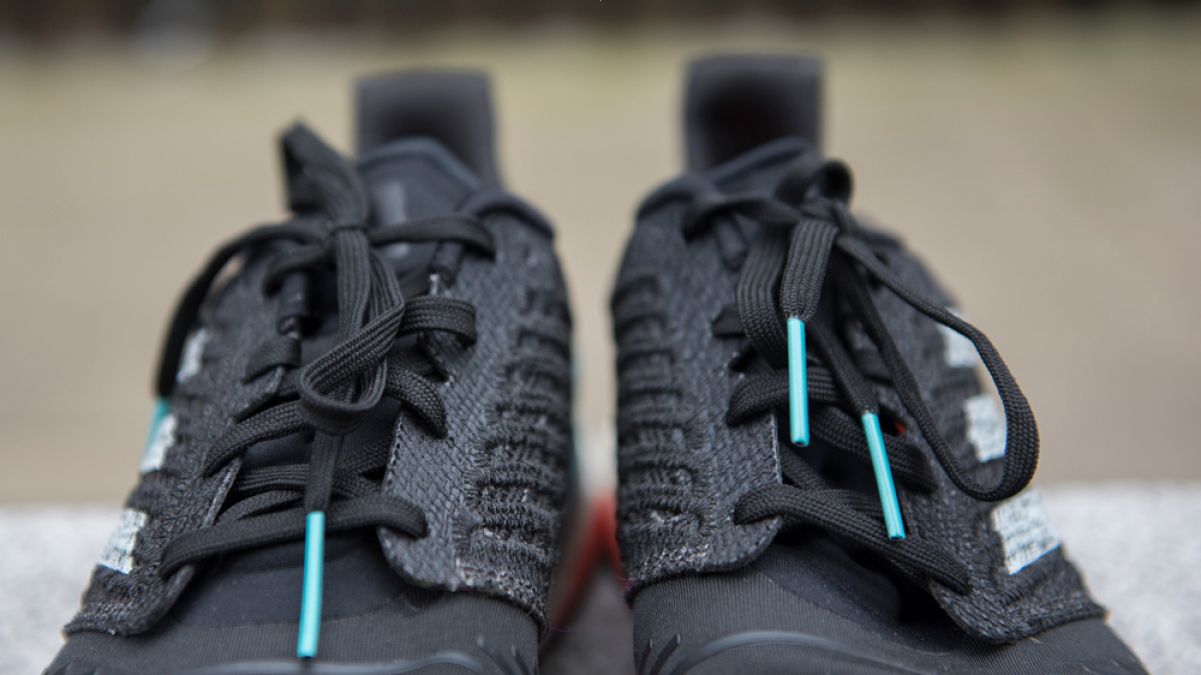
- The Best Running Shoes
- Adidas UltraBoost Review: UltraBoost 21 vs UltraBoost 20 vs UltraBoost 19 vs The UltraBoost Original
- Adidas Releases The Ultra Cool UltraBoost Laceless In August
I tried the SolarBoost for a range of runs, including a parkrun and an intervals session to see how it handled fast stuff alongside a series of more steady plods along roads and light trails. I certainly wouldn’t go anywhere muddy with the SolarBoost, mainly because it’s a road shoe and doesn’t have the grip required, but also because it looks too pretty.
I found the SolarBoost slightly too cumbersome for short intervals and races up to 10K, when I’d prefer a shoe like the Adios. It’s not lacking in pace but it doesn’t pop like a true racer. Rather, it feels like a great shoe for holding a brisk pace over longer distances and bouncing through your general training in comfort. However, if you have found that lightweight shoes like the Adios are uncomfortable and not supportive enough, you may prefer the more substantial feel of the SolarBoost even in short races, and it’s a great option for half marathons and the full 42.2km.
If you’re a very keen runner who has a range of shoes to choose from, the SolarBoost will fit into your line-up for long training runs and easy efforts, with lighter shoes saved for track days and races. If you’re a casual runner looking for a cushioned neutral shoe to tackle all your running, the SolarBoost will fit the bill.

Nick Harris-Fry is a journalist who has been covering health and fitness since 2015. Nick is an avid runner, covering 70-110km a week, which gives him ample opportunity to test a wide range of running shoes and running gear. He is also the chief tester for fitness trackers and running watches, treadmills and exercise bikes, and workout headphones.
